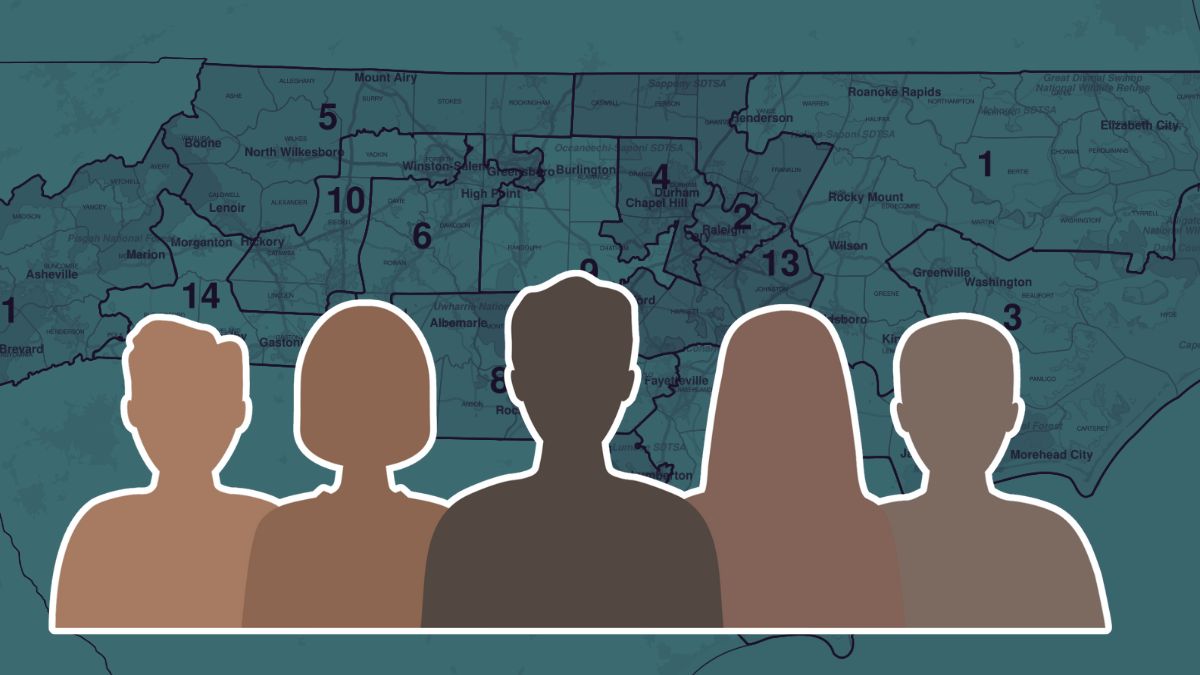Last week, a federal trial over North Carolina’s redistricting maps heard closing arguments. This is the latest trial over the 2023 redistricting maps for North Carolina’s congressional and state senate districts that lawyers for civil activists claim were drawn in a way that dilutes Black voters’ power.
In 2023, Common Cause, alongside the North Carolina NAACP, a group of Black voters, and a separate group of Black and Latino residents, sued over the maps that were used in the 2024 election, but the lawsuits were conjoined to be heard at the federal trial. The original complaints included the state House districts, but those claims were dismissed.
The plaintiffs argue that the maps were designed in a way that Black voters in counties such as Guilford, Forsyth, and Mecklenburg were drawn into districts where the vast majority of voters were white rural residents who do not share their political views, thus diluting the Black voters’ voice in elections. They are looking for the courts to rule that the maps are unconstitutional.
The defending party, state Republican legislators, argue that the maps were created with statistical data but insist that no racial data was used in the making of the maps.
The three-judge panel overseeing the trial includes Judges Thomas Schroeder, Richard Myers II, and Allison Rushing, who were all appointed by republican presidents.
The judges are not expecting to have a final ruling before early August.
Read more at WUNC.





